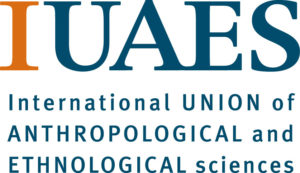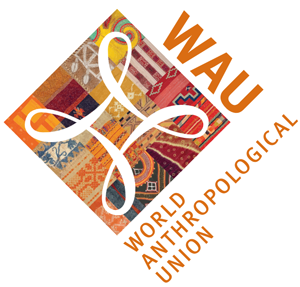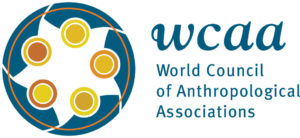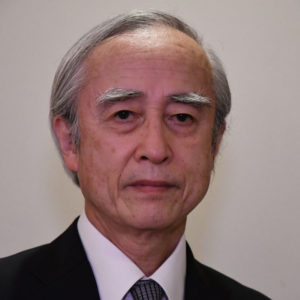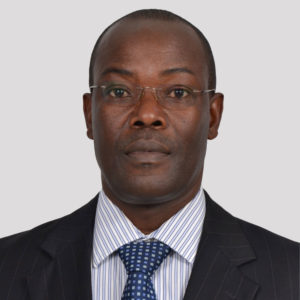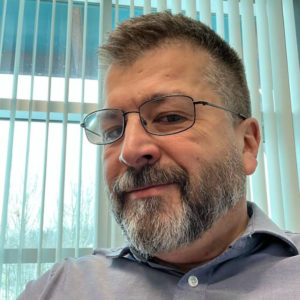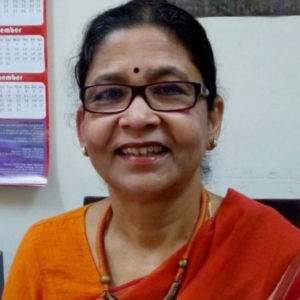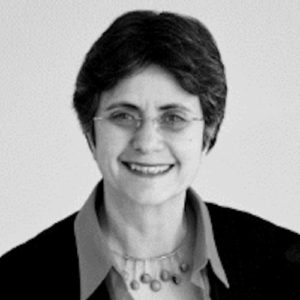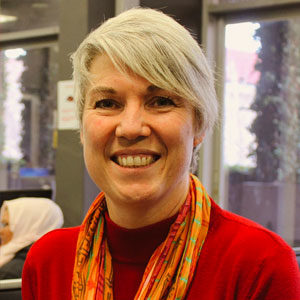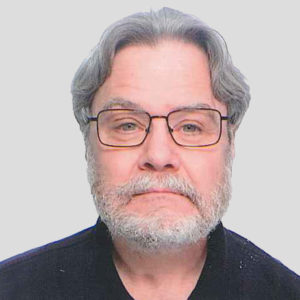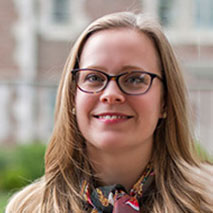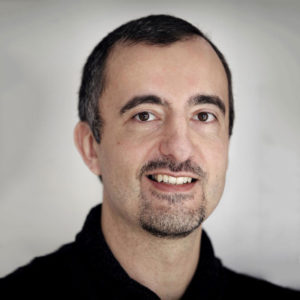Co-Chair: Junji Koizumi
Junji Koizumi is Professor Emeritus of Osaka University. He currently serves as Auditor (2016- ) of NIHU, the National Institutes for the Humanities of Japan, an organization integrating six national research institutes in anthropology, history, literature, linguistics, environmental studies and Japanese studies. He is President (2018- ) and former Secretary-General (2009-18) of IUAES (the International Union of Anthropological and Ethnological Sciences), Co-Chair of WAU (World Anthropological Union, 2018- ), former Chair (2005-09) of WCAA (the World Council of Anthropological Associations), and former President (2012-14) of JASCA (the Japanese Society of Cultural Anthropology). He is former Executive Vice President (2007-11), former Director General of the University Library (2007-11) and former Dean of the School of Human Sciences (2004-06) of Osaka University. He is an anthropologist who earned a doctorate at Stanford University (1981) and was an invited Member of the School of Social Science, the Institute for Advanced Study at Princeton (1996-97). He has carried out fieldwork in a rural area of Latin America (Guatemala) and is specialized in interpretive theories, globalization, transnationality, and international cooperation. He has published books and articles in Japanese, English and Spanish, and led interdisciplinary research projects including A Research Base for Conflict Studies in the Humanities and Dynamics of Cultures and Systems in the Pacific Rim. He has served in a number of councils and committees both in the national government and private organizations.
Co-Chair: Isaac Nyamongo
Isaac K. Nyamongo is a Professor of Anthropology. He currently serves as the Deputy Vice Chancellor (Cooperative Development, Research and Innovation) at the Cooperative University of Kenya. He holds a PhD from the University of Florida, USA and has over 30 years in teaching, research, and consultancy. He has supervised and mentored more than 40 students both at Doctoral and Masters levels. Prof. Nyamongo has held research and training grants from many organizations including the European Union, World Health Organization, International Development Research Center, Wenner Gren Foundation and Toyota Foundation among others. His research and training experience spans several countries within the Africa region including Kenya, Uganda, Mozambique, Tanzania, Zambia, South Sudan, Somalia, Ethiopia and Eritrea and has focused mainly on social drivers of the human condition and development. Prof. Nyamongo has more than 60 peer-reviewed publications in scientific journals. In addition, he has published books and book chapters. Further, he has held visiting Professor positions in the US as a Fulbright Scholar (2009-2010) and in South Africa where he was a Carnegie Mellon Fellow (2012). He is a past Treasurer and President of the PanAfrican Anthropological Association and the recipient of the 2022 Pelto International Award from the Society for Applied Anthropology (SfAA), USA, and 2022 International Cooperative Champion Award from the US Overseas Cooperative Council (US OCDC). For his exemplary service, he was decorated with the Moran of the Burning Spear by the President of Kenya.
Michel Bouchard
Michel Bouchard is a Professor, Department of Anthropology, University of Northern British Columbia in Canada. He served as President of the Canadian Anthropology Society/Société Canadienne d’Anthropologie (CASCA). He has researched ethnicity and nationalism, particularly in Eastern Europe and Russia. He has studied the history of French-speaking populations in Western North America in the 18th and 19th centuries. This past decade, he has studied Métis ethnogenesis and has published a number of books examining historical Métis communities. These include Bois-Brûlés: The Untold Story of the Métis of Western Québec. Vancouver: UBCPress, 2020. Co-authored with Sébastien Malette and Guillaume Marcottehttp://www.ubcpress.ca/bois-brules as well as the winner of the 2020 Prix du Canada Prize Les Bois-Brûlés de l’Outaouais. Une étude ethnoculturelle des Métis de la Gatineau. Québec: Les Presses de l’Université Laval. Co-authored with Sébastien Malette and Guillaume Marcotte. https://www.pulaval.com/produit/les-bois-brules-de-l-outaouais-etude-ethnoculturelle-et-juridique-des-metis-de-la-gatineau.
He is serving as WAU Secretary.
Subhadra Channa
Subhadra Channa is a Retired Professor, Department of Anthropology, University of Delhi since 2016. At present Senior Vice-President of IUAES (International Union of Anthropological and Ethnological Sciences) from 2018 and Chair of the Commission on Marginalization and Global Apartheid. Research interests are in marginalization and identity studies, gender, cosmology and religion, environment and urban communities and landscape. Publications include Gender is South Asia (Cambridge University Press) Life as a Dalit (ed.) (Sage), The Inner and Outer Selves, Oxford University press) and Gender, Livelihood and Environment (ed.) with Marilyn Porter, Anthropological Perspectives on Indian Tribes (2020) and more than 80 scholarly papers. Recipients of awards: Charles Wallace Fellowship U.K ( 2000) ; Fulbright Lecturer, U.S.A 2003and Fulbright scholar-in-residence, 2008-2009, Visiting Professor to Maison D’Sciences De L’Homme, Paris ( 2002) , Visiting Scholar, Kyoto University (2001) ; Visiting Scholar, University of Kentucky, U.S.A ( 2014) , Visiting Professor ( Salvador, Brazil 2019), Fellow of the Society for Applied Anthropology, U.S.A; President of the Indian Anthropological Association (1997-2000); S. C Roy Gold Medal( Asiatic Society, 2011), Distinguished Teacher Award Delhi University, 2016.
Virginia R. Dominguez
Virginia R. Dominguez (B.A., MPhil, and Ph.D. Yale) is the Edward William and Jane Marr Gutgsell Professor of Anthropology (and member of the Jewish Studies, Middle Eastern Studies, and Caribbean Studies faculty) at the University of Illinois at Urbana-Champaign. She is also co-Founder and consulting director of the International Forum for U.S. Studies (established in 1995) and co-editor of its book series, Global Studies of the United States. A political and legal anthropologist, she was president of the American Anthropological Association from 2009 to 2011, editor of American Ethnologist from 2002 to 2007, and president of the AAA’s Society for Cultural Anthropology from 1999 to 2001. In 2013 she helped the World Council of Anthropological Associations establish the Brazil-based Antropologos sem fronteiras (Anthropologists without Borders). Author, co-author, editor, and co-editor of multiple books, she is perhaps best known for her work on the Caribbean, the U.S., and Israel (especially in The Caribbean and Its Implications for the United States, White by Definition: Social Classification in Creole Louisiana, and People as Subject, People as Object: Selfhood and Peoplehood in Contemporary Israel). Her most recent books are America Observed: On an International Anthropology of the United States (coedited with Jasmin Habib), Global Perspectives on the U.S. (coedited with Jane Desmond) and Anthropological Lives: An Introduction to the Profession of Anthropology (coauthored with Brigittine French). Prior to joining the University of Illinois faculty in 2007, she taught at Duke, the Hebrew University of Jerusalem, the University of California at Santa Cruz, the University of Iowa, and Eotvos Lorand University in Budapest. She has also been Directrice d’Etudes at the Ecole des Hautes Etudes en Sciences Sociales) in Paris, a Simon Professor at the University of Manchester in England, a Mellon Fellow at the University of CapeTown in South Africa, a Morgan Lecturer at the University of Rochester in the U.S., a research fellow at the East-West Center in Honolulu, Hawai’i, and a Junior Fellow at Harvard. Internationally, she serves on the World Anthropological Union’s Steering Committee, the World Council of Anthropological Associations’ Organising Committee, and the International Science Council’s Finance and Fundraising Committee.
Helen Macdonald
Helen Macdonald is Associate Professor at the University of Cape Town. A social anthropologist with a BA, BCom and MA from the University of Otago in her native New Zealand, and a PhD from the School of Oriental and African Studies, London. Drawing on 25 years of research, she recently published with Routledge Witch Accusations from Central India: The Fragmented Urn. This book positions witchcraft in light of current dialogues around modernity, post colonialism, violence and where alternative beliefs to those imagined as rational can and should be engaged, yet extends the conversation beyond the African continent where very little attention has been focused. For the last decade she has led a research project entitled The Social Markers of TB that has worked with ethnographic research methods to understand TB infected persons, their families, care providers, and social networks. This international Medical Humanities project in partnership with community led NGOs in both South Africa and India was an important and valuable foundation in bridging anthropology with other disciplines to try to bring further insight to the controversial issues surrounding TB. Her new research interests look at the way parents have allied (or not) with their transgender children and with many others to better understand, explain, and undo structural transphobia and the intersection with gendered and racialized discrimination. She is the WAU Treasurer.
Gordon Mathews
Gordon Mathews is a Research Professor at the Chinese University of Hong Kong, and is the Deputy Chair of the World Council of Anthropological Associations. He has written What Makes Life Worth Living? How Japanese and Americans Make Sense of Their Worlds (1996), Global Culture/Individual Identity: Searching for Home in the Cultural Supermarket (2000), Hong Kong China: Learning to Belong to a Nation (2008, with Lui Tai-lok and Ma Kit-wai), Ghetto at the Center of the World: Chungking Mansions, Hong Kong (2011), The World in Guangzhou: Africans and Other Foreigners in South China’s Global Marketplace (2017, with Linessa Dan Lin and Yang Yang) and Life After Death Today in the United States, Japan, and China (2023, with Yang Yang and Miu Ying Kwong). He has co-edited books on consumption in Hong Kong, the Japanese generation gap, pursuits of happiness around the world, and globalization from below. He has been involved with the Hong Kong Anthropological Society for several decades, as well as with the East Asian Anthropological Association, and has been co-editor of WCAA’s Déjà Lu since its founding, and also of Asian Anthropology. He has been teaching a weekly class of asylum seekers in Hong Kong for the past fifteen years, and also composes and performs electronic music: https://www.youtube.com/@gordonmathews2647/videos
Heather O’Leary
Heather O’Leary is Assistant Professor at the University of South Florida and champions citizen engagement for sustainable urban development. Her research interests include transnational disparities related to women’s rights, water politics, urbanization and the environment. She regularly presents on these topics at national and international anthropology conferences and works with governance institutions like the OECD to find social-science solutions. O’Leary was a Wenner-Gren and a Fulbright Fellow in India, where she has traveled and performed ethnographic research in Hindi for more than a decade. She speaks Hindi and Urdu, having received a Foreign Language and Area Studies Award from the United States Department of Education. She researches how sustainable development plans in coastal cities can be more inclusive. She is an active leader and member of many respected anthropology organizations, including presently serving on the executive committee for the International Union for Anthropological and Ethnological Sciences and the steering committee of the World Anthropological Union.
Noel B. Salazar
Noel B. Salazar holds a PhD in Anthropology from the University of Pennsylvania, USA, and is currently Professor in the Department of Social and Cultural Anthropology, KU Leuven, Belgium. He is Secretary-General of the International Union of Anthropological and Ethnological Sciences (IUAES) and Executive Committee member of the International Council for Philosophy and Human Sciences (CIPSH). Salazar is also Past-President of the European Association of Social Anthropologists (EASA) and founder of AnthroMob, the EASA Anthropology and Mobility Network. He is a former delegate of the World Council of Anthropological Associations (WCAA) and sits on the WCAA’s advisory board. In addition, Salazar serves as an expert member for the European Parliament’s Committee on Transport and Tourism (TRAN), the ICOMOS International Cultural Tourism Committee and the UNESCO-UNITWIN Network ‘Culture, Tourism and Development’. In 2013, he was elected as a member of the Young Academy of Belgium. Salazar is editor of the Berghahn Worlds in Motion book series, co-editor of seven edited volumes and eight special issues, and author of Momentous Mobilities (2018), Envisioning Eden (2010) and numerous peer-reviewed articles and book chapters on various forms of human (im)mobility, imaginaries, heritage and travel. He has conducted ethnographic fieldwork in Indonesia, Tanzania, Chile, and Belgium. Salazar speaks multiple languages and is often invited to give keynote speeches across the world.
